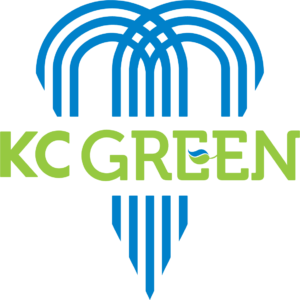Mid-America Regional Council Submits Nearly $200 Million In Grant Applications For Federal Funds
Go to the library and borrow an e-bike. Take it down to Berkley Riverfront Park for a spin to Quindaro, a stop on the Underground Railroad during the Civil War.
Set aside coffee grounds and grapefruit skins for diversion to massive new composting operations. This will cut the 300,000 tons of annual food waste flowing out of our garbage cans and into carbon-emitting, climate-changing landfills.
Residents of long-neglected corners of the city will get weatherization kits, rooftop solar panels and a bunch of new trees.
We can learn how to dedicate part of our backyards to native wildflowers and plants. These were here when Native Americans stomped through today’s Brookside and Overland Park. They support passing pollinators and songbirds.
All this and more will potentially be funded, soon. Since the Kansas City region submitted its applications for an unprecedented $200 million in federal grants over five years. If approved, the money promises to dramatically transform what it means to live, work and play in these parts for decades to come.
The application has been named “Kansas City – Anchoring Climate Transformation” or “KC-ACT.” It is designed to help usher in a new 21st century era of sustainable electric power, transportation, buildings, farm and nature land practices and waste management.
The request was filed on April 1 to meet the deadline for the $4.6 billion special program spawned by the Inflation Reduction Act, signed into law by President Joe Biden in August 2022. A city official working on sustainability for a major Southeast city told Flatland that major cities were encouraged by the feds to dream big and ask for at least $150 million. The Kansas City region did that, and then some.
Big Ask, Big Plans
The formal ask totals $197,823,216. What would that buy?
It would reduce the region’s climate-warming greenhouse gas emissions by 5.455 million metric tons over 25 years. To put that into perspective, take the weight of all the steel used to build New York’s Empire State Building. Multiply that by 100. That would be about the weight of greenhouse gas emissions that the city would not emit by 2050 if the programs were funded in the Kansas City area, planners say.
The federal program is one cornerstone of the effort to jumpstart the economy after the COVID-caused recession and is considered the most significant action Congress has ever taken in the pursuit of clean energy. The U.S. Environmental Protection Agency (EPA) has geared up massively to evaluate hundreds of applications for funding coming in from cities across the land.
“It is a monstrous effort on their side, just like it was for us to develop the application,” said Tom Jacobs, who helped coordinate the local submission.
“I never applied for a grant this large,” Jacobs said. “This was an extraordinarily comprehensive process. We did the best we could do.”
Read full article HERE (full article published April 16, 2024 in Flatland authored by Martin Rosenberg)

